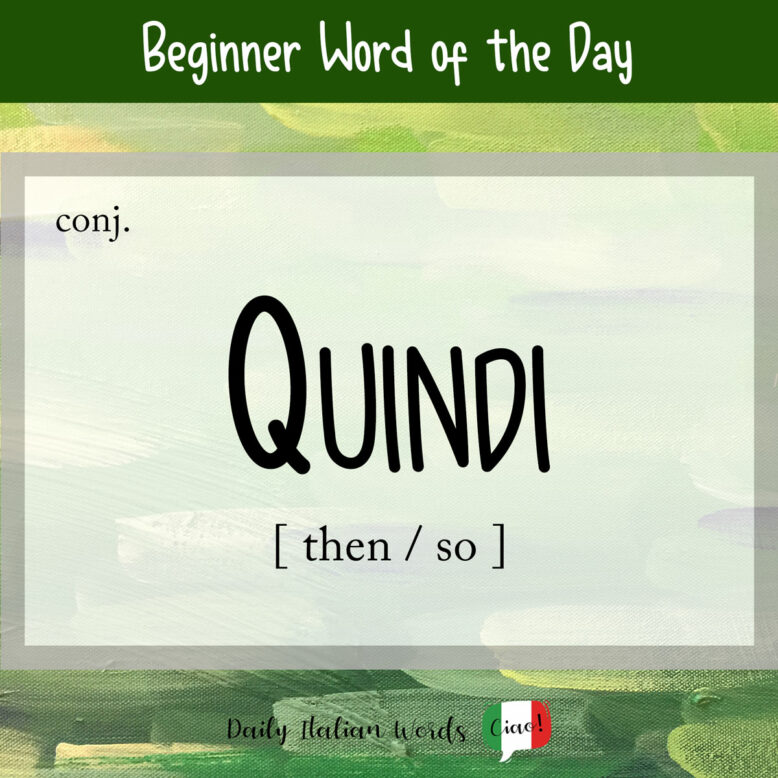An Italian conjunction that allows you to express a conclusion or a cause-and-effect relationship is quindi. It usually translates as so or therefore in English.
Both quindi, and its obsolete twin quinci (hence, thus), come from the late Latin eccum inde ‘from here‘. This locative meaning existed in archaic Italian, much like its Latin counterpart, but is now in disuse.
Learn with our video

Sono in ritardo per il colloquio, quindi prendo la metro invece di andare a piedi.
I’m late for the interview, so I’ll take the underground instead of walking.
Quindi can appear either at the beginning of a concluding statement, or at the end of a sentence to imply a thought without actually saying it out loud.
Quindi, tutto sommato, direi che la serata non è andata poi così male.
So, all in all, I’d say the evening didn’t go that bad.
Mi piacerebbe andare con loro ma ho un sacco di lavoro da finire, quindi…
I’d like to go with them but I have a lot of work to finish, so…

The expression E quindi…? is used frequently as a sarcastic response to something you feel is of little importance or not worth worrying about, similar to the English expressions So what? And so…? and What’s your point?
Non dovremmo essere qui. Rischiamo di farci beccare… – E quindi?
We shouldn’t be here. We might get caught… – So what?
A more dated meaning for quindi is then or next. Used in this sense, it is an adverb rather than a conjunction.
Proseguite per altri due isolati e poi voltate a sinistra, quindi camminate per ancora cinque minuti circa, finché non vi ritrovate davanti alla stazione.
Carry on for two more blocks and then turn left, next walk for about five minutes until you find yourselves in front of the station.
Possible synonyms in Italian include allora (then), perciò (therefore, thus) and dunque (therefore).
This article is also available in video format on our YouTube channel. The audio version can be found on Podbean, Google Podcast, Apple Podcast and Spotify.
Heather Broster is a graduate with honours in linguistics from the University of Western Ontario. She is an aspiring polyglot, proficient in English and Italian, as well as Japanese, Welsh, and French to varying degrees of fluency. Originally from Toronto, Heather has resided in various countries, notably Italy for a period of six years. Her primary focus lies in the fields of language acquisition, education, and bilingual instruction.


